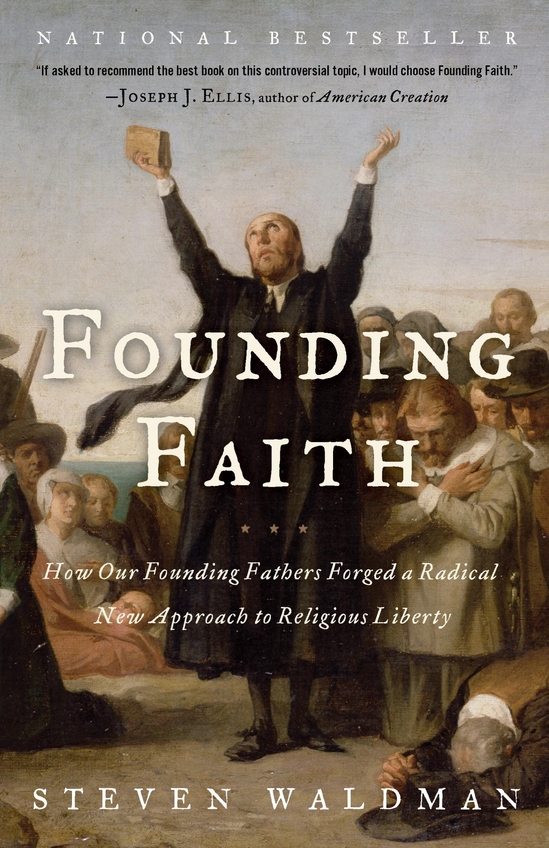 The paperback edition of my book, Founding Faith, comes out this week. It makes a perfect Ides of March present! Buy it here.
The paperback edition of my book, Founding Faith, comes out this week. It makes a perfect Ides of March present! Buy it here.
I thought I’d use the anniversary to reflect a bit on the reaction the book has gotten.
In doing many speeches and media appearances on the book, there have been a few recurring questions. I thought in the next few days I’d lay out those questions and how I’ve attempted to answer them (as well as any new questions y’all post to the comment thread)
Here’s the first one:
What would the Founders make of the Supreme Court decision eliminating prayer in school?
First, it depends which founder you’re talking to. There’s really no such thing as “The Founding Fathers” when it comes to religious liberty. Madison would be thrilled. He really was a hardcore believer in separation. Adams was more comfortable with church-state intermingling, defending for a long time Massachusetts right to have Congregationalism as the official state religion.
Second — and here’s the part liberals may not want to hear — the First Amendment needs to be seen in part as a states rights compromise. Some members of Congress, like Madison, wanted separation of church and state throughout the land but others just wanted to make sure the national government would leave the states alone – including letting them regulate religion as much as they want. At the point the constitution was ratified 11 of the 13 states still had rules banning people of certain faiths — e.g. Jews, atheists, Catholics — from holding office. Some members of Congress wanted to preserve that freedom to discriminate.
Madison hated that — but he didn’t have the votes to impose his will. If you pulled them from the antechamber back then and asked about prayer in school, they would have all said — some happily and some with frustration — that it was entirely up to the states.
Now, if the Founders were transported here to 2009, the first thing you’d have to do is catch them up on a few things — notably the civil war and the subsequent passage of the 14th Amendment, in which the 19th century lawmakers decided that many of the decisions left to the states shoudn’t have been. Madison would have been relieved; others would bemoan the lack of Bible teaching.
But the line in my speeches that invariably causes the most murmering is when I turn to the conservatives in the audience and say, “Putting aside the Constitutional issues, why on earth would you want the government involved in religion? I mean, you think (often appropriately) that government messes up anything it touches — from health care to housing. So why would you want it anywhere near your religion? What makes you think the state education “bureaucrats’ who manage your schools so well would do any better with your prayers?”
To me, Madison’s greatest insight was that even government efforts to help religion will end up hurting religion.
So, to answer the question, there would undoubtedly be some Founders who would be upset that we don’t have prayer in public schools. Not Madison. He’d be thrilled.
More from Beliefnet and our partners
